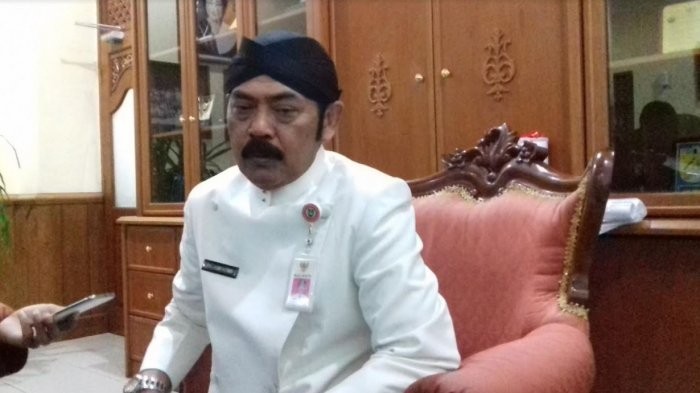Popular Reads
Top Results
Can't find what you're looking for?
View all search resultsPopular Reads
Top Results
Can't find what you're looking for?
View all search resultsWater turns "blood" red after factory allegedly pollutes tap water in Surakarta
Residents of Banyuanyar subdistrict in Surakarta, Central Java, have complained that the water supplied by the city-owned tap water company (PDAM) has turned red over the last two weeks.
Change text size
Gift Premium Articles
to Anyone
Residents of Banyuanyar subdistrict in Surakarta, Central Java, have complained that the water supplied by the city-owned tap water company (PDAM) has turned red over the last two weeks.
“We suspect an outflow of factory waste is connected to the water pipes. Our team and the police are still investigating the matter,” Surakarta PDAM spokesman Bayu Tunggul said on Monday.
A Banyuanyar resident, Arief Setiaji, said residents had been afraid to use the water as they were worried it might contain dangerous chemical substances. He added the water would change color at certain times, especially in the evening when the water flow reached its peak.
“Sometimes the color is dark like blood, sometimes it’s blue. We have used the PDAM service for dozens of years, but this has only occurred recently,” Arief said.
The incident has prompted residents to buy water collectively from a water tank truck to fulfill their needs for clean water.
PDAM director Sarwono said the company had earlier reported a textile factory to the Surakarta Police and the Surakarta Environment Agency. The report was filed following early indications that the factory had polluted the water.
The city administration reacted quickly to the matter, with Mayor FX Hadi Rudyatmo instructing the environment agency to seal the factory as it was discovered to lack a waste water treatment plant (IPAL). All textile factories are required to have waste treatment facilities.
“Theoretically, the factory can reopen as long as it fulfills the IPAL requirement. However, as the police are currently handling the case, the management should wait until the legal proceedings are complete,” Hadi said, adding that its closure also served as a warning to other factories not to ignore operational requirements. (kuk)










